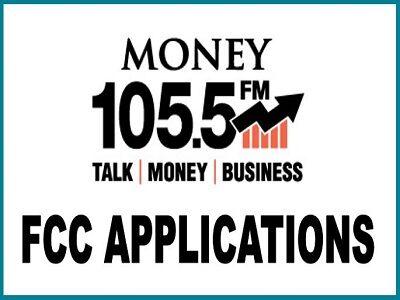Trump's limited drug tariffs might not bring back U.S. manufacturing
National News

Audio By Carbonatix
11:23 AM on Monday, September 29
Brett Rowland
(The Center Square) – President Donald Trump's 100% tariffs on imported medicines include a carveout for generic drugs, which could limit the move's effectiveness.
Monica Gorman served as special assistant to the president for manufacturing and industrial policy and co-chair of the White House Supply Chain Disruptions Task Force from 2022-25. She said Trump's high tariffs on imported drugs could miss most Americans because more than 90% of U.S. prescriptions are filled with generic drugs. Trump targeted only patented drug imports for his tariffs.
That means most Americans won't notice a difference at the pharmacy counter, Gorman said.
"I think the effect on pricing should be relatively minimal, because the generics are excluded and because the big pharmaceutical companies are already making investments," Gorman told The Center Square.
Trump has released few details about his plans for imported drug tariffs, but said in a 62-word social media post last week that drug companies building manufacturing capacity in the U.S. would be exempt from the tariffs.
Gorman said that given the carveout for generics, the tariff policy won't move the needle for manufacturers.
"It's unlikely to incentivize shifts in the generic supply chain," she told The Center Square.
Gorman also served as deputy assistant secretary of Commerce for manufacturing from 2021 to 2022. She now serves as managing director at Crowell Global Advisors.
She said the tariff changes could also create challenges for U.S. Customs and Border Protection, the federal agency charged with collecting tariffs.
"This is a particularly novel tariff action in that it not only divides products within the industry, and so the Harmonized Tariff Schedule and how these products are classified when they're imported does not distinguish between branded and generic," she told The Center Square. "So that's going to be a challenge for enforcement and compliance."
The Center Square asked U.S. Customs and Border Protection if the agency was prepared to handle Trump's latest order on imported patented drugs and other questions about the required changes. A spokesperson for the agency said it would look into The Center Square's questions.
Gorman said drug makers need answers.
"What we know so far has raised a lot of questions," she told The Center Square. "There have been statements noting that if companies have invested in domestic manufacturing, they may be excluded. And so again, that means CBP at time of import has to distinguish by importer, which is highly unusual. And then there have also been some statements from administration officials saying that the exclusions come only for the particular drug that is being made in the United States, not necessarily that all of that company imports."
Gorman said details are needed before the Oct. 1 start date.
"Right now we have more questions than we have answers, and so it's crucial that we see more documentation from the administration that hopefully starts to answer some of these questions, particularly on import and enforcement," she said.
Drug makers have already started to push back.
John Crowley, president and CEO of the Biotechnology Innovation Organization, said the advocacy organization supports Trump's vision for bringing more drug manufacturing to the U.S., but said the immediate tariffs could hurt smaller companies. Many large drug makers already have U.S. operations or are working to build them.
"The immediacy of punitive, 100% tariffs on innovative medicines for any company without 'shovels in the ground' would devastate our nation's small and mid-sized biotechnology companies," he said in a statement. "These 3,000+ companies are the heart and soul of America's vitally important biotechnology industry."
Alex Schriver, senior vice president of Pharmaceutical Research and Manufacturers of America, said money spent on tariffs cannot be spent on cures.
"Most innovative medicines prescribed in America are already made in America. PhRMA companies continue to announce hundreds of billions in new U.S. investments thanks to President Trump's pro-growth tax and regulatory policies," he said in a statement. "Tariffs risk those plans because every dollar spent on tariffs is a dollar that cannot be invested in American manufacturing or the development of future treatments and cures."
Schriver said it could raise costs for consumers.
"Medicines have historically been exempt from tariffs because they raise costs and could lead to shortages," he said.
Trump has made tariffs the centerpiece of his economic agenda at home and abroad. Trump used a 1977 law that doesn't mention tariffs to reorder global trade in a matter of months through tariffs to try to give U.S. businesses an advantage in the world market. Using tariffs under the International Emergency Economic Powers Act, Trump put import duties of at least 10% on every nation that does business with the U.S.
A case challenging Trump's tariff authority is pending before the U.S. Supreme Court.
Trump didn't immediately cite authority for the latest round of tariffs, which may use other federal statutes that haven't yet been challenged.
Trump has said he wants to use tariffs to restore manufacturing jobs lost to lower-wage countries in decades past, shift the tax burden away from U.S. families, and pay down the national debt.
A tariff is a tax on imported goods that the importer pays, not the producer. The importer pays the cost of the duties directly to U.S. Customs and Border Protection.



